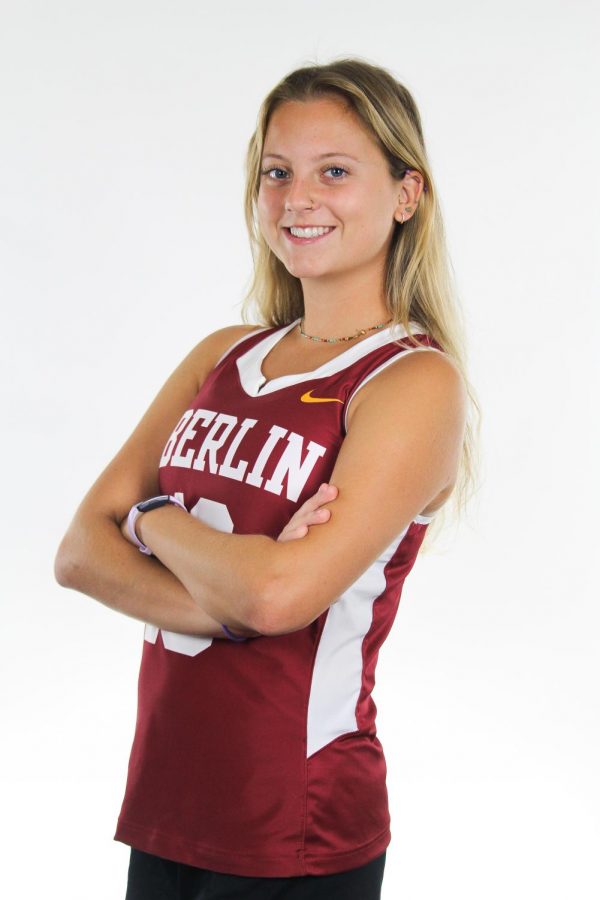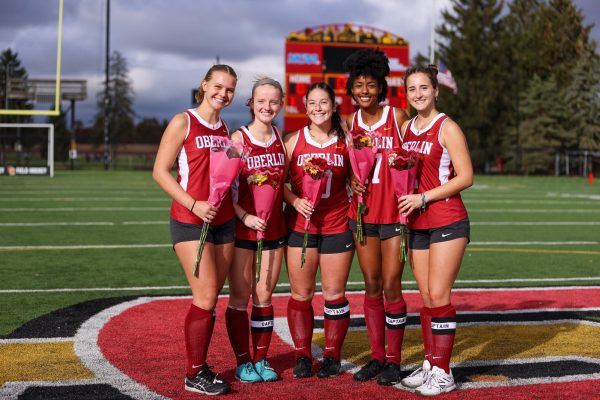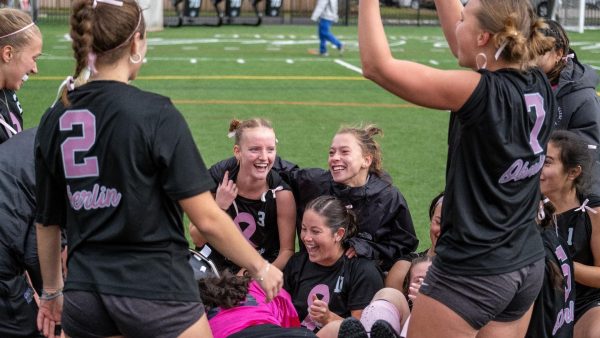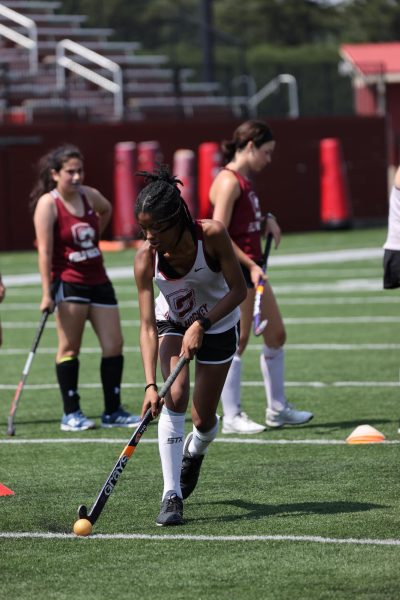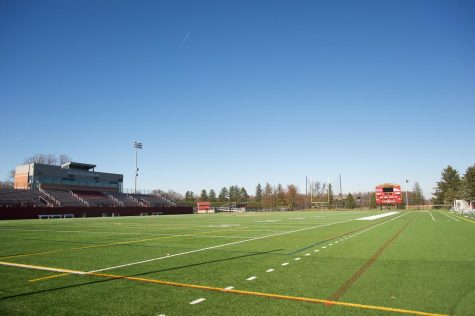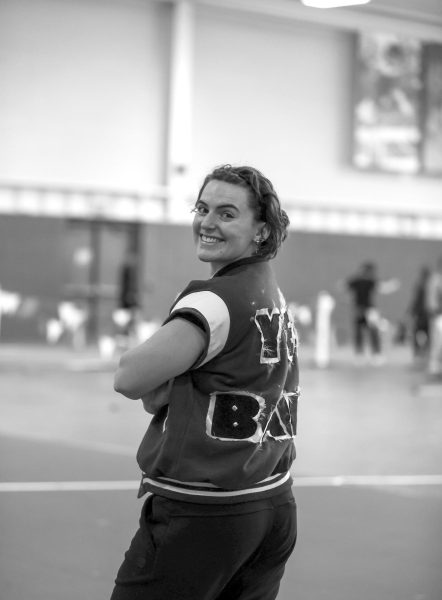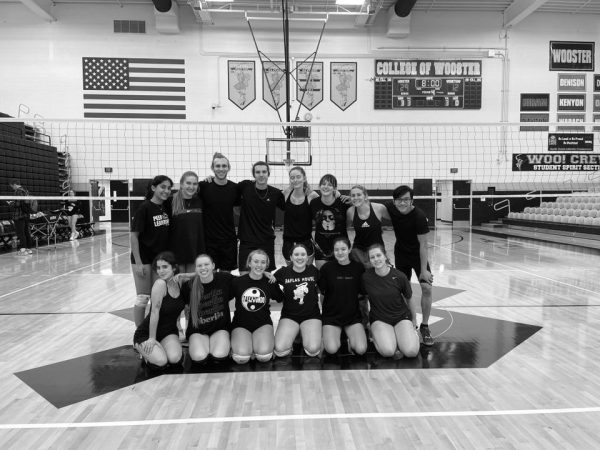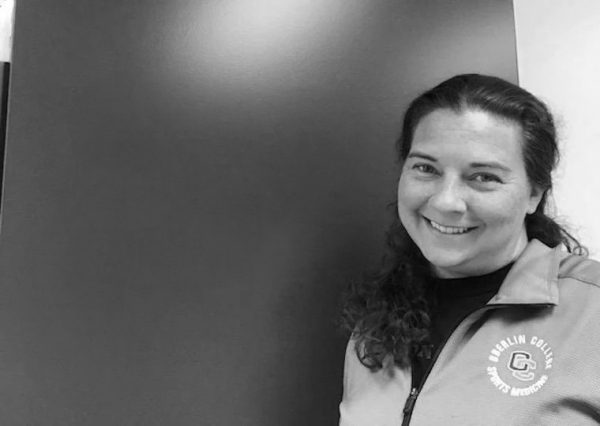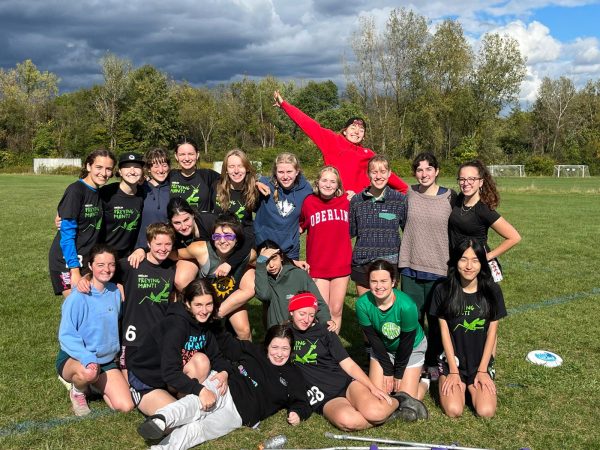In the Locker Room with Bonnie Wileman, Field Hockey Captain
Photo courtesy of Bonnie Wileman
Field hockey captain Bonnie Wileman looking fierce.
College fourth-year Bonnie Wileman has been playing field hockey for the last 10 years, and has been a starting player since her first year at Oberlin. This will be her last season at the College, but it is also her first as team captain and midfielder. While she has created many memories on the field, she also values her team’s traditions off the field, which have drawn her close to her teammates.
This interview has been edited for length and clarity.
You’ve been playing field hockey for 10 years now, and I’m curious how the game has impacted your life and how it has helped you learn about yourself.
I think one of the big things is teamwork, and being on a team is how I work best. I did track for two years in middle school and I remember I hated it — it was all me. So I think being on a team for this long and playing a team sport has made me able to work in teams outside of athletics, like in classes. Perseverance is a huge thing, too, because field hockey is hard and workouts are hard and it gets tough. As I’m sure you’ve seen this season, we haven’t won any games yet. It’s just about being able to push through — feeling stuck and like you’re not getting better, but knowing that if you keep trying, you will get better. With sports in general, a huge thing is perseverance and sticking with things even if they aren’t working, and knowing that hard work pays off.
What do you expect for your relationship with your sport after graduation?
Well, I’ll be moving to Charlotte, North Carolina when I graduate. I know there aren’t any field hockey schools in Charlotte, but I know Duke University, the University of North Carolina at Chapel Hill, and Wake Forest University are all within a two to three hours drive. Most of the North Carolina Division I schools are in the same conference, so I’ve watched a lot of UNC, Duke, and Wake Forest. I’m hoping, on weekends, I’ll be able to drive to see those games, which will be cool. In Oberlin, we don’t really have the opportunity to go see the Division I level of play. But the actual playing of field hockey, I’m not sure about. I’m hoping, since North Carolina has so many good Division I programs, that more people play the sport and that I’d be able to join a pickup league or something. I’m definitely gonna keep running. Really, I don’t know. I don’t know if I’ll play much, but maybe one day I’ll be a high school coach or something.
Thinking about the team on the field, what are some strategies and core players this year?
My other fourth-year co-captain, Lea Watkins-Chow, plays defense and I think she has the most defensive saves on our team. And she just has an iron stick. The second she puts it down, nothing gets through her — she plays right back. Eli Modahl is another fourth-year and she’s on the defense, but she’s been playing some midfield this season. She’s been shifting a little bit, but she’s also in the defense and she and Lea shout out advice and tell people what to do. Then we have our two goalies, Post and Julia Vincent, and they switch around and they’re also the lead communicators. I think most of our communication comes from the defense because they can see the whole field, so that’s who you’ll hear yelling.
With most of the team’s leadership graduating this year, what does the future of Oberlin field hockey look like?
Well, luckily, one of our captains — Post — is actually a third-year. They’ve already had this leadership role, which I think is awesome because when they get to their fourth year, they’ll already have been a captain and hopefully will continue that. Lea, Post, and I have actually been talking about trying to create an online document for future captains or future teammates. We were trying to think of traditions that we had done in the past, but it was weird because we had no season in 2020. It’s hard to remember before that, so that’s why we were thinking of making this online document and maybe just putting in some notes about things we did this season that worked well and things that didn’t work well. I learned a lot from the seniors when I was a first-year and second-year. I’ve been trying to emulate them in everything that I’ve done this season. I’m hoping that this year we can set that sort of same example that the younger players will continue to look up to. And I’m sure they all know that any day — no matter how many years from now — if they need to reach out to us, they can do that.
You mentioned traditions that you want to document — what are your favorite team traditions?
My favorite tradition is “Teamsgiving.” I’m sure most teams do this sort of thing, but it’s usually over fall break — because of our sport, usually we have to stay on campus for fall break. One of the days we would all cook something and we’d fill out an Excel sheet of who’s bringing what. All the team members would pair up and cook something, we’d all bring our food, the coaches would come, we’d dress up, and we’d usually go around and say a few things we’re grateful for. I remember my first year, it was towards the end of the season and that fall break, I was really missing home because I wasn’t able to go home and all my friends were going home. I just remember having that Teamsgiving and having that ability to get together outside of sports and really realize that it’s so much more than just playing field hockey with each other — that was really special to me. And that year one of our older players — she has this beautiful singing voice and she plays the piano beautifully — just started playing the piano and singing and then by the end of it, we were all gathered around the piano singing songs for 30 minutes, and that’s still my favorite field hockey memory.


